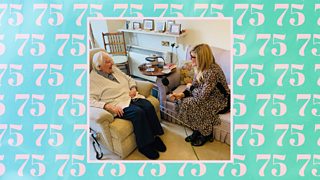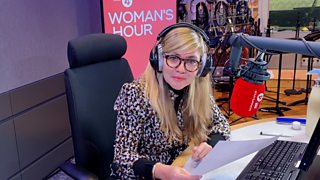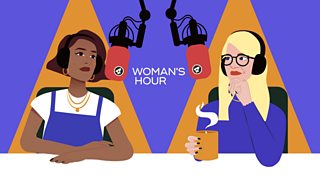The Woman’s Hour poll: How equal are we, and what’s next?
It’s 75 years since Woman’s Hour was first broadcast, but when it comes to equality, how much has really changed for women living in the UK? We wanted to know how women feel about equality in 2021; where in their lives do they feel like they’ve achieved it, where do their biggest frustrations lie, and what do we need to do to achieve it?
The results of the poll, commissioned to mark our 75th anniversary, show there are three main areas where women feel there is still a lot of work to be done; their experiences of sexual abuse and exploitation, pay and benefits and the unfair division of labour in the home. Here are some of the most striking results…
Savanta ComRes interviewed 2,151 UK women aged 18 and over online from 20th to 22nd September 2021. Savanta ComRes is a member of the British Polling Council and abides by its rules.
More than two thirds of women feel they do not have equality due to experiences of sexual exploitation and abuse.

In a year that saw Woman’s Hour host multiple discussions around women’s safety following the death of Sarah Everard and girls sharing their experiences of sexual harassment and abuse in school anonymously online, sexual exploitation and abuse featured prominently in the poll. It found 68% of women aged 18 and over feel like men and women are unequal when it comes to their experiences in this area of their lives.
75% of women feel most unequal in their own homes.

We might feel like women shed the image of 1950s housewives decades ago, but 75% of the women polled said they feel unequal in their own homes, due to the unfair division of housework. An especially thorny topic for many Woman’s Hour listeners throughout the Covid pandemic, two in five of the women polled admitted they’d also had arguments with their partner when trying to make things more equal in the home (41%).
70% feel pay and benefits at work are still not equal.

The workplace also really stood out as an area where progress needs to be made, with 70% of the women asked saying they felt pay and benefits are still not equal. Pay also happened to be the most important area where women felt progress needed to be made to feel equal (33%), especially among older women over 55, while younger women (18-24) felt sexual exploitation was the most important issue to tackle.
Ever get stuck making the tea for an important meeting? Half (48%) of the women polled have experienced expectations to perform certain roles at work, such as remembering birthdays and organising social events, while 39% of women said they have experienced unequal treatment at work.
So how much has really changed while Woman’s Hour has been on air? Half of the women polled felt equality between men and women is better now than it was ten years ago, and upwards of half say equality is better now than it was twenty years ago (55%), fifty years ago (59%) and seventy-five years ago (59%), when Woman’s Hour was first broadcast.
So what’s next?

Seven in ten (70%) women said they felt the fight for equality isn’t over, and that women still need to campaign, compared to just one in five (20%) who felt there was no longer a need to get out there and make their voices heard.
However just 14% said they actively strive for equality in their everyday lives, with one in eight (12%) admitting they never do. Younger women (aged 18-34) were a lot more likely than those over 55 to consciously be out there fighting the equality fight (19% vs 10%).
And how would equality be better achieved? By everyone getting exactly the same treatment, policies and benefits, or if the differences between men and women were embraced? Half (50%) say that the pathway to equality requires men and women to have exactly the same treatment, while a third (36%) felt embracing our differences was the way forward.
Listen to our Woman’s Hour anniversary programme with Emma Barnett on ±«Óătv Sounds to hear the findings of the poll discussed by guests including Laura Bates, Jeanette Winterson and Inaya Folarin Iman.
What do you think of the findings of the poll? Join the conversation @bbcwomanshour on and or have your say during our phone-in live from 10am on Monday 11 October.




